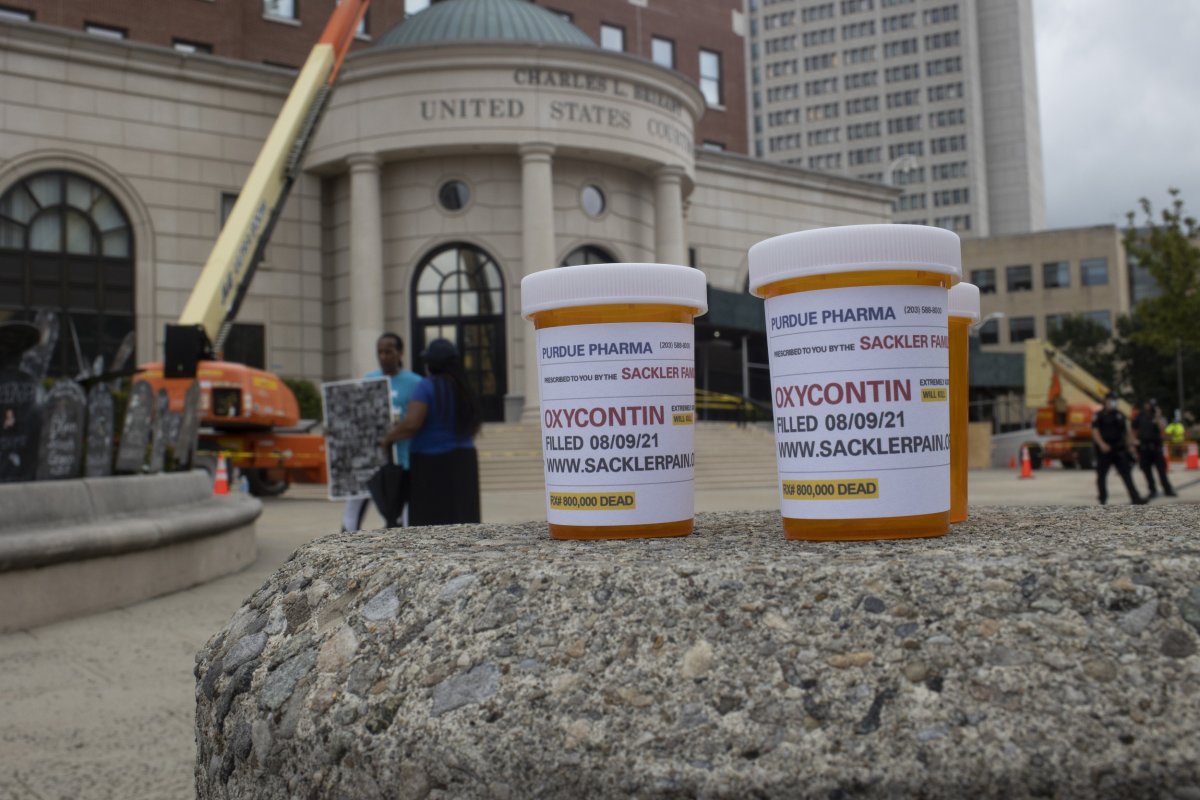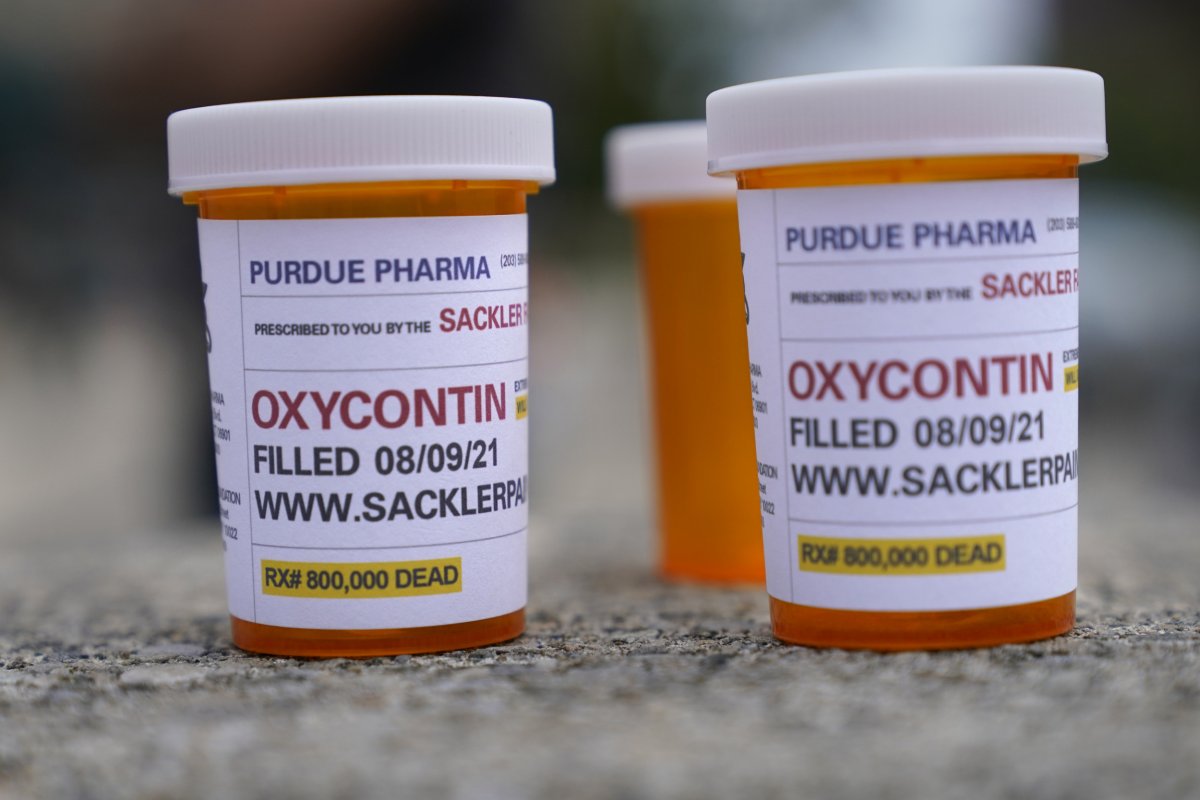A member of Sackler family—the owners of the Purdue Pharma empire at the center of a legal debacle related to their handling of the opioid OxyContin—told a court Thursday that the company had hoped to gain control of a developing addiction crisis by pushing a new version of the drug, the Associated Press reported.
The new version, Mortimer D.A. Sackler said via videoconference, was harder to tamper with for a faster high via injection or by crushing and snorting the drug.
"It was important to the board that the market share of abuse-deterrent opioids grew because we believed and were told repeatedly by management that abuse-deterrent opioids saved lives," Sackler said.
The testimony was the third appearance from the wealthy pharmaceutical family regarding whether a judge should allow Purdue Pharma to reorganize into a company that would not involve the Sacklers.
The Maryland Assistant Attorney General is building a case on the premise that the Sackler family is liable for the opioid addiction plaguing communities.
"You're saying it's a humanitarian cause?" Brian Edmunds responded to Sackler's assertion.
"I wouldn't put it in those words, but we were always trying to do the right thing, find the right balance," Sackler said.
For more reporting from the Associated Press, see below.

Sackler served more than two decades on Purdue's board of directors and for a time was a vice president, though he said he had no official duties in that role.
The drug was reformulated to make it harder to crush for snorting or injection for a faster high. But as it turned out, overdoses only rose after it was introduced, with most of the new deaths linked initially to heroin and more recently to illicitly produced fentanyl and other synthetic opioids. In all, more than 500,000 deaths in the U.S. have been linked to opioid overdoses since 2000.
It was the third day in a row that U.S. Bankruptcy Judge Robert Drain, based in White Plains, New York, heard testimony from a member of the Sackler family, which has long sought to stay out of the spotlight for its business activities.
On Tuesday, David Sackler testified that family members would contribute $4.5 billion in cash and control of a charity fund as part of the settlement only if one provision stayed in the plan—providing protection from all present and future lawsuits over opioids and Purdue activity for family members.
A day later, Richard Sackler—who is David Sackler's father and Mortimer D.A. Sackler's cousin, and who served at different times as president and chairman of Purdue's board—told the court that he did not believe he, his family or the company had any responsibility for the opioid crisis in the U.S.
Mortimer D.A. Sackler, in his testimony, was also asked about the opioid epidemic.
"The overdose crisis in America is a national emergency, and it's a horrible situation that to my understanding has been increasing since the late '70s," he said.
Purdue, based in Stamford, Connecticut, pleaded guilty to criminal charges relating to its opioid practices in both 2007 and last year, but no members of the Sackler family have admitted wrongdoing or been charged with any crimes.
In a separate settlement announced last year with the U.S. Department of Justice, Sackler family members agreed to pay $225 million but again admitted no wrongdoing.
The bankruptcy being sought by the company is a means to settle 3,000 lawsuits filed by state and local governments, Native American tribes and others.
Under the proposed plans, the Sackler family members would give up ownership of the company and future profits would go largely to abate the opioid crisis. Family members would also contribute a total of $4.5 billion in cash and control of charitable funds.
Most of Purdue's creditors who have voted on the plan say they support it, but Maryland and eight other states are among those pushing back. They object largely to the legal protections it would extend to members of the Sackler family.
Drain has said he expects to decide next week whether to confirm the plan.

Uncommon Knowledge
Newsweek is committed to challenging conventional wisdom and finding connections in the search for common ground.
Newsweek is committed to challenging conventional wisdom and finding connections in the search for common ground.
About the writer
To read how Newsweek uses AI as a newsroom tool, Click here.








